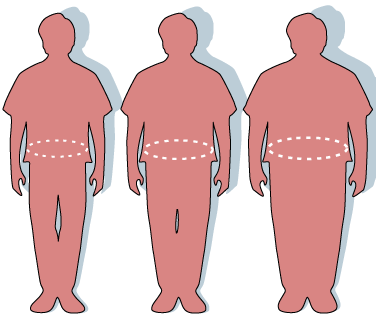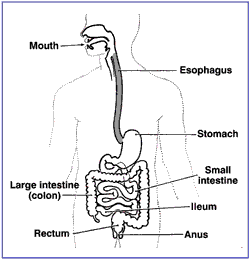For many students, midterms and the dreaded all-nighters are creeping just around the corner like a bad zombie movie. This can definitely make it quite difficult for some to maintain a regular eating pattern. Just the other day, I over slept my clock’s set alarm and had to skip breakfast just to sneak into a midterm I had that day. Although this is not the greatest of habits, this is certainly not an isolated case. Many people find it necessary to forgo their normally scheduled meals in order to meet important deadlines in school and work alike.

Mmmm, a typical american breakfast! Author: Jessica from Hove, American breakfast , via Wikimedia Commons
Is this even remotely healthy for us? Our grumbling stomachs tell us, “NO WAY!”
However, recent research done on intermittent fasting (IF) paints us a new and appealing picture of the issue. Intermittent fasting is an eating strategy that uses scheduled fasts before and after a daily feasting period where an entire day’s caloric requirements are typically consumed. These bouts of eating usually span from one to eight hours depending on an individual’s preferences.
An overview of intermittent fasting and its many variations (0:37-1:42). (attributed to Youtube user: Ian McCarthy)

In one study that explored the effect of meal frequency on the thermic effect of food (TEF), it was found that women consuming one large meal a day experienced higher TEF values than women who consumed the same amount of calories split into six meals. The TEF is the energy needed to store dietary nutrients and convert recently ingested food into useful metabolites. The researchers observed faster gastric emptying and nutrient absorption from subjects eating all their daily required calories in one sitting. This results in higher TEFs due to the fact that there are more nutrients in the blood available to be oxidized or stored. This implies that one can burn more energy in a day by simply condensing their calories into less meals per day.
In another study of reduced meal frequency, it was noted that most signs of health remained the same regardless of the number of meals consumed by men and women. The measured heart rates, body temperatures and body weights did not significantly change when switching between eating strategies. While most factors remained constant, the fat mass between treatment groups did not. Participants of the study subjected to one meal per day experienced significant reductions in fat mass.

Comparison of varying visceral fat accumulation in men. Source: Report of the Dietary Guidelines Advisory Committee on the Dietary Guidelines for Americans, 2000. Via Wikimedia Commons.
Although IF provides benefits for improving body composition, it also has relevance in preventative measures against diseases. When exploring the relationship between meal frequency and colorectal cancer, researchers discovered that those who ate four or more times a day had a two-fold elevated risk of incidence. The main reason behind this is the secretion of bile acids. Upon eating a meal, the gallbladder contracts and releases primary bile acids into the small intestine. Despite its involvement in the digestion of dietary fats, it also has a role in colorectal carcinogenesis. The bile secreted into the lumen acts as a promoter for colon tumors. It follows that by eating less frequently throughout the day, one can reduce their risk of colorectal cancer.
Intermittent fasting may even aid in promoting brain health and longevity. Studies on rodents subjected to a reduced meal frequency showed an increased production of ketone bodies. These chemicals have use as an energy source and can even provide some other benefits like neuroprotection and resistance to epileptic seizures. The experimenters noted a significant increase in the survival of neurons after injecting mice undergoing IF with seizure-inducing excitotoxins into their hippocampi.
While I don’t recommend intentionally skipping meals to obtain the benefits mentioned above, I do hope that the merits of fasting are slightly more apparent. Compensating for previously missed breakfasts, lunches or dinners with slightly less nutritional foods for the sake of sticking to a set schedule may do more harm than skipping the meal altogether!
-Earvin Remandaban


